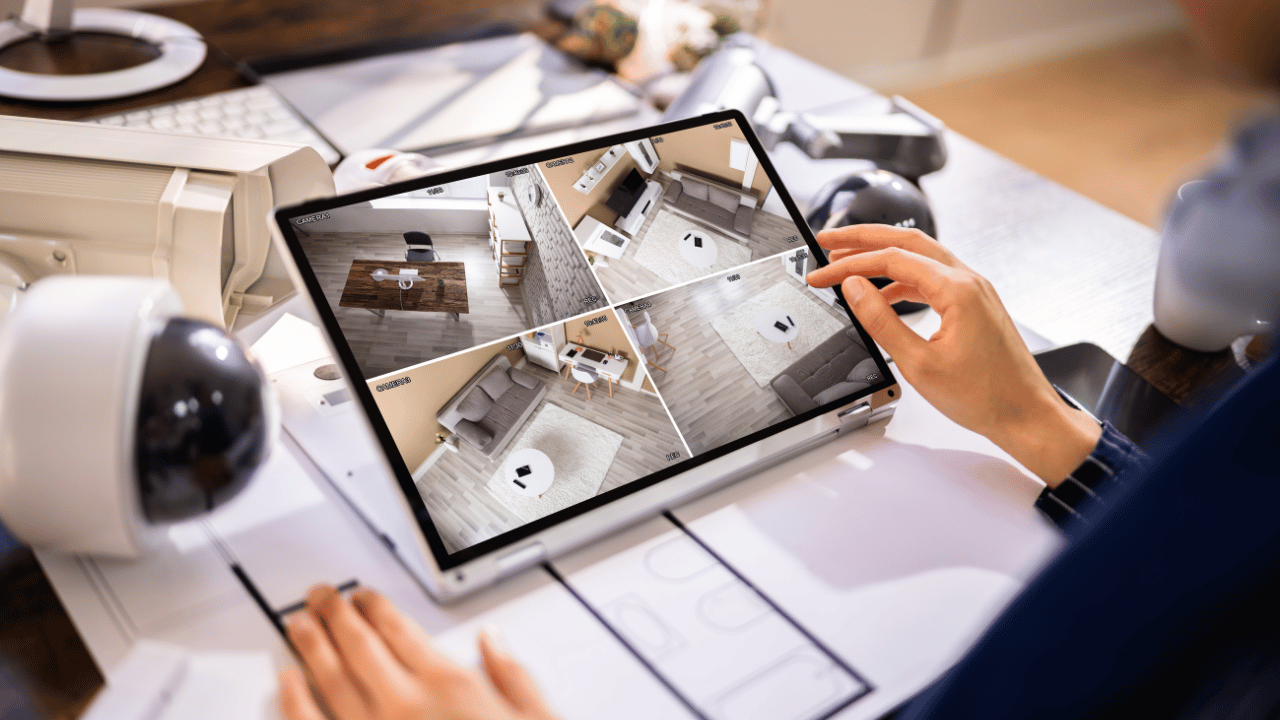In today's world, security is no longer optional — it's essential. As businesses face increasing threats from break-ins, vandalism, and cybercrime, owners must invest in systems that protect their assets, staff, and data. With the rise of remote work and digital integration, the traditional lock and key are no longer enough. Modern businesses need alarm systems that combine sensors, cameras, automation, and even smoke detectors to offer comprehensive protection.
From mom-and-pop stores to multi-site corporations, the demand for advanced, reliable, and smart security systems has skyrocketed. In this guide, we’ll walk you through how to set up a business alarm system that actually works — without overcomplicating or overspending.
Why Modern Businesses Need Alarm Systems
Increase in Commercial Crime
Small and medium-sized businesses are common targets for theft, especially after hours. A well-designed alarm system acts as a deterrent and ensures swift response if an incident occurs.
Remote Work and Vacant Offices
With many employees working from home, offices are often empty during the day or night. Smart security systems allow owners to monitor their property remotely and get real-time alerts.
Integration of Smart Tech
Smart technology, including smoke detectors, motion sensors, and mobile-accessible cameras, allows for better control and customization. These systems are scalable, efficient, and can even reduce insurance premiums.
Step-by-Step Guide to Setting Up Your Business Alarm System
1. Assess Your Security Needs
Start by identifying vulnerable areas in your building. These often include entry points, storage rooms, server areas, and customer-facing spaces.
Also, consider unique threats like fire. In such cases, smoke detectors should be part of your initial plan — not an afterthought.
2. Choose the Right Components
An effective alarm system includes a combination of the following:
- Control Panel: The brain of your system, often with touchscreen or mobile control.
- Security Cameras: Interior and exterior options, with HD recording and night vision.
- Motion Sensors: Detect movement and can trigger lights or alarms.
- Door and Window Contacts: Alert you when an entry point is breached.
- Glass Break Detectors: Sense the sound of breaking glass.
- Smoke Detectors: Crucial for fire safety and sometimes required for insurance compliance.
- Siren or Alarm Bell: Loud enough to deter intruders immediately.
3. Decide Between DIY and Professional Installation
DIY Installation
Ideal for small offices or retail spaces. Kits are affordable, easy to install, and customizable.
Professional Installation
Recommended for larger properties or businesses with complex needs. Professionals ensure every component is optimized — from positioning smoke detectors to wiring backup power.
4. Select Monitoring Services
You have two main options:
- Self-Monitoring: Free and manageable via mobile apps. Ideal for low-risk properties.
- Professional Monitoring: Includes 24/7 oversight, emergency dispatch, and insurance-friendly documentation.
Many providers offer tiered packages, allowing you to start small and scale later.
Balancing Budget and Security
How Much Should You Spend?
Costs vary based on system size, brand, and features. Expect to pay:
- $300–$700 for a small DIY setup
- $1,000–$3,000 for professional systems
- $20–$100/month for monitoring services
If you're investing in safety, don’t forget fire protection. Modern systems integrate smoke detectors, and some insurance providers offer discounts if these are included and monitored.
Consider Long-Term Value
An effective alarm system is not a sunk cost — it adds value through theft prevention, risk reduction, and employee safety. Look for scalable options that allow upgrades over time.
Benefits of an Integrated Alarm System
Real-Time Alerts and Remote Access
Smart systems allow you to control everything — cameras, locks, even smoke detectors — from your phone. Get instant alerts when something unusual occurs.
Legal and Insurance Compliance
Some jurisdictions and insurers require specific security measures. Having smoke detectors and camera surveillance in place can help you meet these requirements and reduce liability.
Employee and Customer Confidence
A secure environment builds trust. Staff feel safer, and customers know you take security seriously.
Comparing Alarm System Features
When choosing a provider, evaluate:
- Mobile App Support: Can you control and monitor from anywhere?
- Camera Quality: Look for 1080p or higher, plus infrared night vision.
- Sensor Range: Ensure coverage fits your property size.
- Integration: Can the system connect with smoke detectors, lights, and smart locks?
Take the time to compare packages and read user reviews before committing.
Common Mistakes to Avoid
Overlooking Fire Safety
Many business owners focus solely on burglary prevention. Yet fires cause billions in damage annually. Always include smoke detectors as a part of your system.
Ignoring Maintenance
Check your system monthly. Replace batteries, update firmware, and ensure your cameras and smoke detectors are functioning correctly.
Choosing Price Over Quality
Cheap systems often lack critical features, reliable support, or scalability. Invest in a system that grows with your business.
Final Thoughts
Setting up a business alarm system doesn’t have to be overwhelming or expensive. Start with a clear assessment of your needs, choose quality components, and don’t skip essential features like smoke detectors. Whether you run a small storefront or a large corporate space, the right system will save you stress, money, and potential loss.
For businesses in Ontario, companies offering Security Camera Installation Maple services can help you get started professionally and efficiently.
FAQs
Do I need professional monitoring for my business alarm system?
Not necessarily. Self-monitoring works for some businesses, but professional services offer 24/7 oversight and emergency response.
Are smoke detectors part of an alarm system?
Yes. Many modern alarm systems include smoke detectors for fire safety, and they can often be monitored alongside other sensors.
How much does it cost to install a commercial alarm system?
Costs range from $300 for basic DIY setups to several thousand dollars for professional, multi-zone systems.
Can I install security cameras myself?
Yes. Many systems are DIY-friendly, but professional installation ensures optimal placement and integration.
What features should I prioritize in a business alarm system?
Focus on remote access, HD security cameras, motion sensors, door contacts, and smoke detectors for a well-rounded system.

